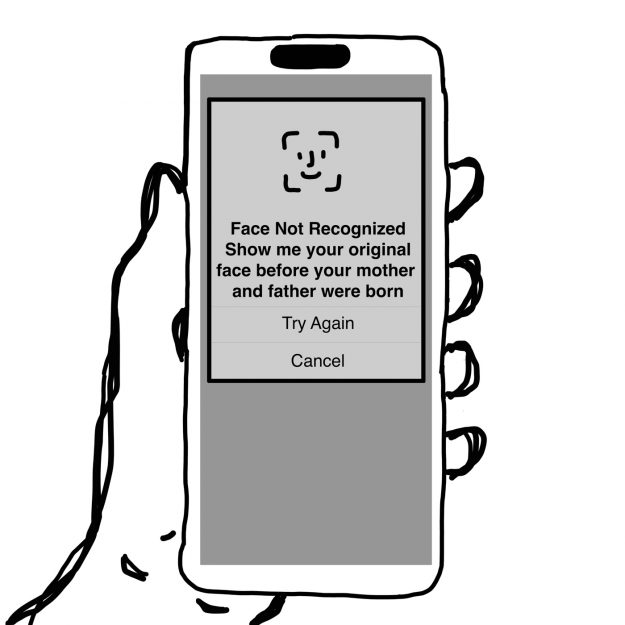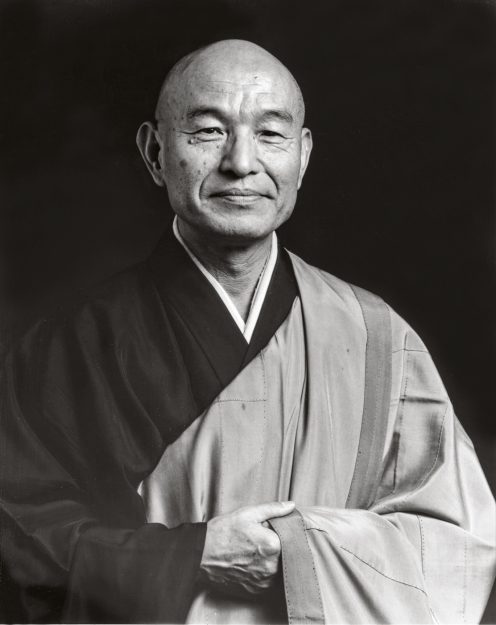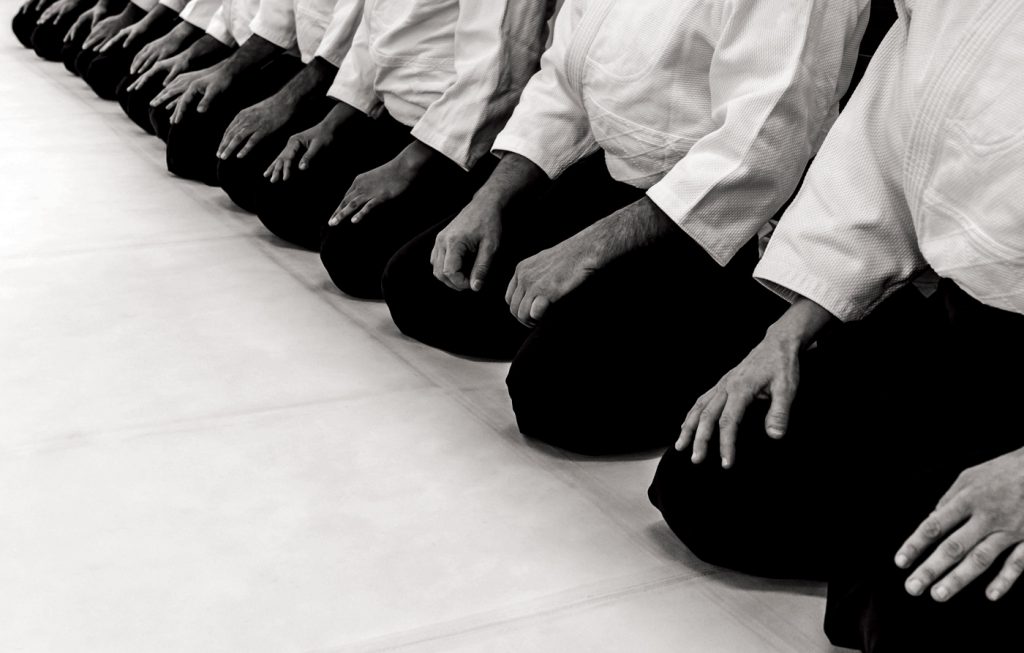On “Meditation and Jodo Shinshu” by Reverend Miki Nakura, Winter 2023:
I
identified with much that Reverend Miki Nakura said in his article. I’ve practiced Soto Zen for thirty years but have a strong interest in Jodo Shinshu and always chant the nembutsu a few times when I sit to do zazen.
It seems to me that the distinction between these two practices is a false one. How can the practice of zazen rely on self-power when a fundamental doctrine of Buddhism is that there is no self? Also, in my early days, when I was trying to do the practice, to actually accomplish something, it was impossible, and I never accomplished a thing. But when I began to surrender to something larger than myself (I’m as happy to call that Amida Buddha as anything else), when I just threw everything into the house of Buddha, practice seemed effortless and much more productive, even though I wasn’t trying to produce anything. I imagine Reverend Nakura is familiar with this paradox. That has been the direction of my practice, to give myself over to this Other, which really isn’t an Other but rather my Self, and let it do zazen. That process of surrender gets deeper and deeper. It seems like the practice of Zen but in the spirit of Pure Land.
In an appendix to Hara: The Vital Center of Man by Karlfried Graf Dürckheim, I learned about the work of Okada Torajiro. He led a fascinating life, but I feel that he was reinventing the wheel, because really the whole practice of seiza already existed in Soto Zen, with a few simple modifications. We consider seiza to be another posture of zazen and teach it as one. We sit zazen just for the sitting, not to accomplish anything. I think of it as harmonizing body and mind, as Nakura says at the beginning of his piece, and that the sitting is the important part.
In any case, many thanks for this article. I hope someday to practice in a Pure Land temple, because I’d like to have the experience. But I can’t help feeling that, fundamentally, all Buddhists are doing the same thing.
– David Guy
On “What’s Wrong With Anger?” by Allison Aitken, Winter 2023:
Allison Aitken’s Winter 2022 article was a life-changing read. Very relevant as we witness what’s going on in the Gaza Strip.
– Rob Artval
On “Dreaming Together” by Nikki Mirghafori, Winter 2023:
N
ikki Mirghafori shows her delightful talents by weaving the strands of insightful engagement into a current parlance. It infuses the mind with the radiance that comes from the unreachable grace of White Tara and encapsulates the heart with the symmetry of intimacy.
– Melville Alexander
On “Why Should I Appreciate Life?” by Dale S. Wright, Winter 2023:
T
he brilliant, generous article by Dale S. Wright is exactly what I need right now. Thank you!
– Cherlyn Parsons

T
hank you, Tricycle, for Dale S. Wright’s article on amor fati in the Winter 2023 issue. Mr. Wright makes several great observations. I also admire both Maezumi Roshi and Friedrich Nietzsche in their overcoming of suffering, but I couldn’t help thinking that they were both relatively well-off men in their culture who had the time to practice gratitude. Can and should this be helpful advice for the millions around the globe who are not so blessed?
– Ed Boquet
On “Finding the Words” by Amy Gross, Winter 2023:
Amy Gross’s interview with Joseph Goldstein is a heartfelt expression of our solitude and its vastness and potential. Our awareness of thoughts and feelings can mysteriously bring forth an opening to the universe. Thank you, Joseph and Amy, for your inspiring words!
– Marilyn Rothman
On “A Gift” by Sunita Puri, Winter 2023:
A Gift” by Sunita Puri should be required reading for all humans. I very much value this artful recollection and counsel.
– Norm St. Landau

On “Keep a Small Flame Burning” by Tricycle editors, tricycle.org, Fall 2023:
I
appreciate and thank the Tricycle editors for this timeless article. I can turn to it at any time of anger, confusion, etc. It will stay with me as I continue to live in a world I’ve gradually found more difficult to understand.
– Kelly Kamilton
On “Zen and ‘The Myth of Sisyphus’” by Matthias Birk, tricycle.org, Fall 2023:
T
hank you for this article by Matthias Birk—I’ve read about Camus sporadically over my adult life, and in your essay I finally learned that he was French Algerian and born into poverty. I’d always thought he was an upper-middle-class Frenchman. Your essay opened my eyes to seeing him and his work with a fresh
perspective.
I also resonate with the comparison between Zen and the myth of Sisyphus. I recently spent a year being a companion to someone who struggled with dementia. We found our place in the joys and sorrows of the present moment. His reverence for the birds, the garden outside, and his dog never wavered. I was happy to share in that.
Thank you again for this encouraging essay.
– Catherine De Marin
♦
To be considered for the next issue’s Letters to the Editor, send comments to editorial@tricycle.org, post a comment on tricycle.org, or visit us on Facebook, Instagram, or Twitter.
Thank you for subscribing to Tricycle! As a nonprofit, we depend on readers like you to keep Buddhist teachings and practices widely available.
